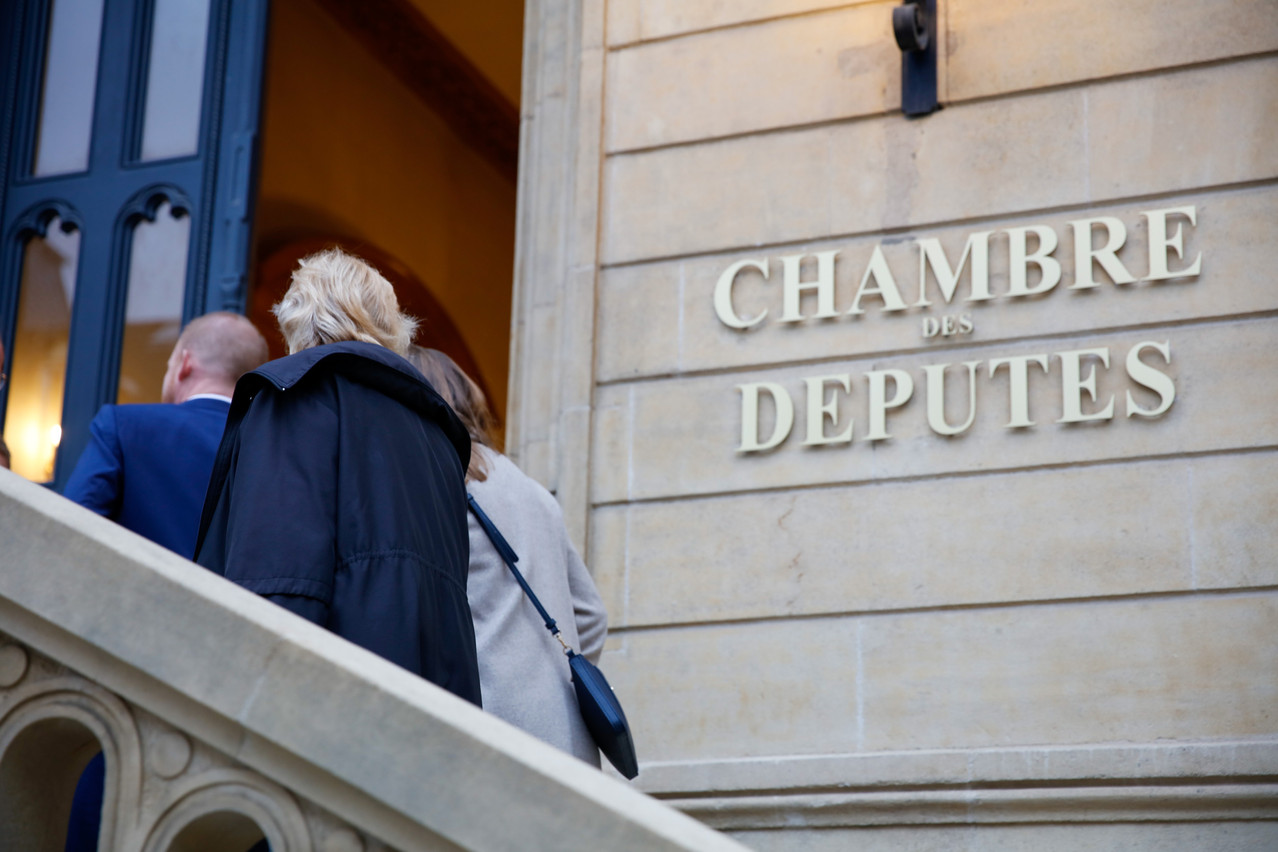The process to update Luxembourg’s constitution has been ongoing for more than a decade. After a comprehensive new text was split up into four chapters, MPs previously passed the first two batches of updates--on the justice system and wide-ranging reforms of the organisation of the state and government.
“We are writing a constitution for the 21st century,” said Léon Gloden (CSV) during a debate about the changes on 9 March.
New to the constitution is a right to data protection. The right to start a family is being added to a list of civil liberties, which also strengthens children’s rights. “The state ensures that every child can express their opinion freely on any matter that concerns them. Their opinion is taken into account,” the updated constitution says. “The state ensures that each child benefits from the necessary protections, measures and care needed for their wellbeing and development.”
The text also enshrines human dignity, academic freedom and animal rights, access to culture, and a commitment of the state to combat climate change and work towards climate neutrality. It strengthens the rights of persons with disabilities and establishes social dialogue, the protection of cultural heritage, the right to housing and the right to work as goals for the state to strive for.
While these targets cannot be claimed in court, it means the Council of State must analyse all new laws whether they are compatible with the targets and whether they work towards the achievement of these goals. “It’s a first step,” said Charles Margue (déi Gréng). “We all have the responsibility to achieve these goals.”
Equal before the law
The reform has faced criticism from foreign worker’s rights group Asti. The constitution currently states that all Luxembourgers are equal before the law with other people on the territory granted equal rights. “From a point of view of international law this is completely outdated, the principle of equality based on nationality,” Asti spokesperson Sérgio Ferreira .
The reform upholds this. “We’re a country of immigrants and to uphold a distinction between nationals and foreigners sends the wrong message,” Ferreira said. Simone Beissel--the rapporteur to parliament on the latest changes--during a defended this decision.
“It was a point of political consensus […] that this would remain, but adding that everyone--every resident, every human being on Luxembourg territory--enjoys exactly the same protections, rights and duties as Luxembourgers. We just--a political decision--placed Luxembourgers above,” she said and on Wednesday again defended the paragraphs.
Sven Clement (Pirate Party) said foreigners and cross-border workers “contribute essentially” to Luxembourg society and it would have been an important symbol to change the text. Even the government in its position on the reform questioned why this distinction was being made.
In Germany, the constitution states that “All persons shall be equal before the law” (“Alle Menschen sind vor dem Gesetz gleich”).
Voters’ rights
The right to vote in national elections will remain limited to Luxembourg nationals. While the constitution says the law can give political rights to foreign nationals--such as voting in municipal elections--this explicitly excludes the right to vote in legislative elections.
In a 2015 referendum, 78% of voters rejected the idea of granting non-nationals the right to vote in parliamentary elections.
The right-wing ADR has claimed that the constitutional reform would pave the way for non-nationals to receive voting rights, an idea the conservative party opposes. Lawmakers from both sides of the aisle pushed back against the ADR, with Beissel accusing the party of spreading fake news and misinformation.
The major parties in parliament renewed their commitment to the 2015 referendum result. Even if the matter should be put to a vote again down the line with a different outcome, this would require the constitution to be amended.
The ADR during a press conference on Tuesday had also warned that the right to start a family could enable polygamy. “That’s total nonsense,” Gloden said. “Polygamy is forbidden in Luxembourg.”
The same is true for surrogacy, which the ADR said the constitutional reform could enable. Mars Di Bartolomeo (LSAP) responded that a child born abroad through a surrogacy arrangement should still enjoy rights and protections in the grand duchy.
Fernand Kartheiser (ADR) during the debate said his party wasn’t planning on denying children those rights but insisted that the right to start a family risked making children a “commodity”.
Referendum push continues
The ADR has long pushed for a referendum on the reform. This had been promised when lawmakers were working on one comprehensive new text but was abandoned when the reform was broken up into smaller pieces.
A two thirds majority must support constitutional changes and lawmakers have to vote twice on the documents. In the three months between both votes, citizens can force a referendum if they manage to successfully collect from voters. A first initiative failed at the end of last year. A collection of signatures to hold a referendum on the second chapter of changes .
Alternatively, a group of 16 MPs can officially petition the government for a referendum. The ADR on Tuesday opened this initiative, as it had for both previous chapters.
The DP, LSAP, déi Gréng as well as the Pirate Party voted in favour of the changes. The Pirate Party had submitted the proposals to its members, who decided to support the reform. The ADR opposed the reform with déi Lénk abstaining. The left-wing party had submitted an alternative proposal for a Luxembourg constitution.
